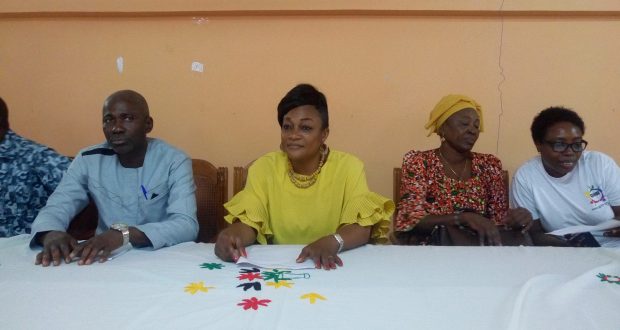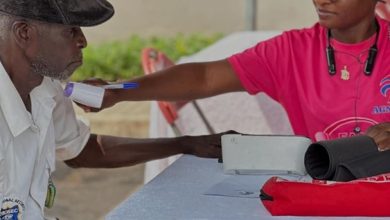Minister launches initiative to reduce Malaria and Malnutrition

 Programmes that focus on improving the nutritional status of girls and adolescents would help to ensure an improvement in the status of women, Ms Otiko Djaba, the Minister of Gender, Children and Social Protection, has said.
Programmes that focus on improving the nutritional status of girls and adolescents would help to ensure an improvement in the status of women, Ms Otiko Djaba, the Minister of Gender, Children and Social Protection, has said.
“Given the already vulnerable situation of women and girls in developing countries, attempts to improve the overall status of women should work hand in hand with attempts to improve the nutritional status of female children, adolescents and adults,” she said.
Ms Djaba said this at the launch of “Reducing Malaria and Malnutrition in Priority Population Initiatives (ReMMap)” in Accra.
She said it was important to recognise that there were multiple demands on women, especially the poorest, adding; “what is needed is a supportive system to allow women to make the choices that work best for them and their families.
Ms Djaba said the Gender Ministry would support and help make the initiative a success.
Dr Matthew Opoku Prempeh, the Minister of Education, said the Ministry had, over the years, ensured that nutrition, sanitation and environmental considerations constituted important inputs into education policies and strategies as necessary conditions for learning and achieving quality education.
He said Ghana’s Education Strategic Plan provided the guiding framework within which educational development took place and provided for measures to promote good health and nutritional practices in the education system.
Dr Opoku Prempeh said although significant progress had been made in educational access through the integration of nutrition, health and other disciplines into education strategies, Ghana still faced challenges with full access attainment.
“It is for this reason we applaud the noble efforts …. Mrs Rebecca Akuffo-Addo, Ghana’s First Lady, in championing this course aimed at reducing malnutrition in our priority population,” he said.
Dr Opoku Prempeh said malaria had a debilitating effect on a child’s well-being and also caused anaemia and under-nutrition thereby having a two-pronged effect on school attendance and educational outcomes.
“My Ministry pledges its full support to this noble venture,” he said.
Mr Kwaku Agyeman Manu, the Minister of Health, in a speech read on his behalf, said though there had been remarkable progress in the control of malaria and the reduction in prevalence of under-nutrition, the gains made had not been even across all areas of the country and across all categories of women and children, with wide geographical and socio-economic disparities.
He pledged the support of the Ministry towards the initiative and urged the Ghana Health Service and all stakeholders to collaborate and support it “for the realisation of our joint goals of attaining universal coverage and health for all”.
Hajia Alima Mahama, the Minister of Local Government and Rural Development, said evidence pointed to the fact that poor hygiene and sanitation practices prevailed in the same settings where malnutrition was highly prevalent, a situation which needed to be addressed urgently.
“This, I believe, is the priority population Mrs Akufo-Addo is targeting in this magnanimous venture,” she said.
Ghana could only develop with a healthy and well-nourished population, the Minister said.
The ReMMap initiative builds on the successes of public health work by the Infanta Malaria Prevention Foundation, under the leadership of the First Lady, Mrs. Rebecca Akufo-Addo, over the last 12 years.
It seeks to bring stakeholders and actors together to solve these two important public health and developmental problems in Ghana.
Source: GNA




